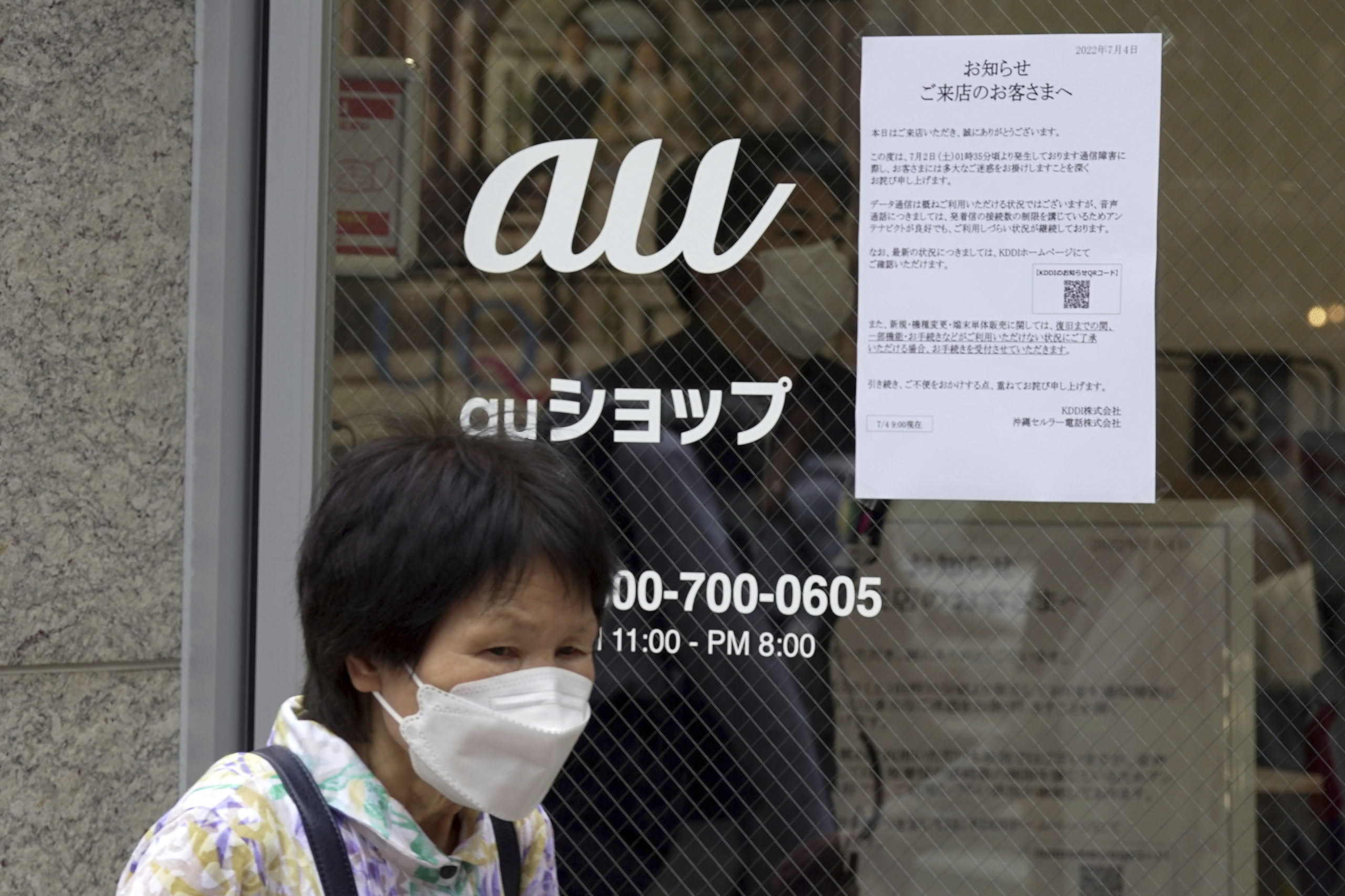 1
1 1
1
TOKYO (AP) — Many users of Japan’s No. 2 mobile carrier KDDI Corp. were still having trouble making calls Monday after a massive outage throughout the weekend that affected nearly 40 million people, disrupting deliveries, weather reports and other services across the country.
The company said data transmission had largely been restored by Monday morning, but service restrictions were still causing many users to have trouble with making phone calls and sending short messages.
The outage started in the early hours of Saturday during a scheduled maintenance work at a facility in western Tokyo.
It disabled text messaging, phone calls and other services for more than 39 million users of KDDI’s mobile services. Parcel deliveries also were disrupted.
Over the weekend, the Meteorological Agency was unable to send weather data at hundreds of stations, dozens of cash machines were disabled in central Japan, and Tokyo and other municipalities had trouble reaching COVID-19 patients subject to health monitoring at home.
The major outage came just ahead of a July 10 parliamentary election and was seen as embarrassment for Prime Minister Fumio Kishida’s government, which has been promoting digitization of the world’s No. 3 economy.
The government was quick to address public concern over the problem.
“It is extremely regrettable that mobile phone service, which is a crucial infrastructure for social and economic activity, has been unusable for such a long time,” Deputy Chief Cabinet Secretary Seiji Kihara told reporters on Monday.
He said the government was taking the situation “seriously” and urged KDDI to provide a thorough explanation. Kihara said he expected KDDI to “sincerely” consider compensation for possible damage claims from users.
On Sunday, KDDI President Makoto Takahashi apologized and provided an initial explanation about what happened and the outlook for resumption of disrupted services.
“We consider this a severe incident,” Internal affairs and communications minister Yasushi Kaneko said on Sunday. The outage was especially unfortunate because it disrupted emergency calls at a time when people were facing increased risks of COVID-19 and heat strokes and potential emergencies due to an approaching typhoon.
An outage last year by rival NTT DoCoMo affected nearly 13 million people.